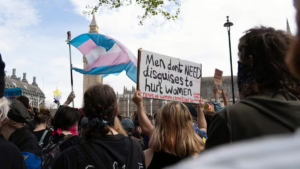“Diversity and inclusion are being invited to a party, but only one is asked to dance.”
Context
Verna Myers, a diversity consultant and inclusion specialist based in the US, has used this widely quoted phrase to describe the difference between superficial representation and meaningful involvement. The analogy was first shared in keynote speeches and writings over a decade earlier, and it remains a cornerstone for equity and inclusion training around the world.
The quote from 2025 has been resurfaced across the UK HR/legal landscape after a Supreme Court decision redefined legal criteria to recognise gender identity in employment laws. The Supreme Court’s ruling, which clarified what a “woman” is for single-sex services and spaces, reignited workplace and public debates on identity, dignity, and inclusion.
Myers’ quote is a helpful lens for HR professionals to navigate these complex conversations, and reminds employers that representation alone will not suffice without active efforts made to include, respect, and empower employees in the workplace.
The word “meaning” is used to describe the meaning of the phrase
The quote makes a clear distinction:
Diversity Diversity is the presence of differences, whether they be gender, ethnicity or background.
Inclusion The practice that ensures all individuals feel valued, welcomed and capable of contributing meaningfully.
Myers, a HR expert, suggests that inviting people from different backgrounds into an organization is just the first step. The greater challenge is to remove barriers, ensure equitable participation, and create a culture in which every person, regardless of their identity, feels heard, seen and respected.
After the UK Supreme Court ruling, employers are now faced with the challenge of not only inviting the right people, but also ensuring that policies, language, and leadership create a space where everyone can engage in a genuine way.
The Implications
The decision has complicated how employers view gender, inclusion and equal pay in the workplace. HR should consider:
Re-evaluating policies: Organizations may have to revisit their internal definitions for gender, particularly where they intersect with equal rights and safeguarding responsibilities.
Supporting Line Managers: Inclusion happens at the team-level. Managers need to be equipped with the right tools and training in order to facilitate conversations and make decisions that are legal and ethical without compromising dignity.
Focusing psychological safety: Employees want to feel respected, understood, and safe. This means that HR teams need to continue to be empathetic and to ensure diverse voices are represented, as well as invited to help shape the company culture.
Myers’ metaphore is particularly relevant at this time: As laws change, employers must continue to move beyond compliance and towards connection. HR plays a key role in ensuring diversity is not just about numbers, but also embedded into behaviours and systems.



